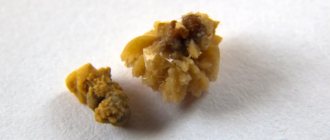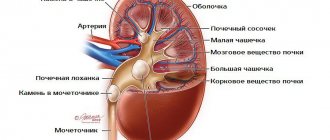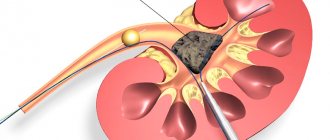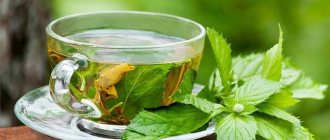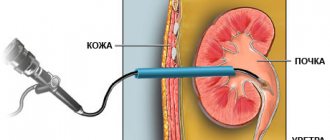Good day!
My name is Khalisat Suleymanova - I am a herbalist. At the age of 28, I cured myself of uterine cancer with herbs (read more about my experience of recovery and why I became a herbalist here: My story). Before being treated using traditional methods described on the Internet, please consult with a specialist and your doctor! This will save your time and money, since the diseases are different, the herbs and treatment methods are different, and there are also concomitant diseases, contraindications, complications, and so on. There is nothing to add yet, but if you need help in selecting herbs and treatment methods, you can find me at my contacts: Khalisat SuleymanovaInstagram page: instagram.com/fitoterapevt1
Telephone: 8
Email: [email protected]
I consult for free.
Urolithiasis - urolithiasis - is a disease characterized by the deposition of stones in the human urinary system. Treatment of this disease takes some time. Some patients are interested in the question: is it okay to drink alcohol if you have urolithiasis?
The effects of alcohol on the kidneys
Alcohol is perceived by the human body as a toxin. Confirmation is the condition after heavy drinking, which is accompanied by symptoms of general intoxication. To combat the consequences of alcohol poisoning, the kidney filtration system is actively involved in its work, experiencing increased load. After drinking vodka or beer, diuresis increases, which at first glance seems to be a positive effect. In fact, a pathological increase in the volume of excreted fluid is accompanied by profound functional disorders in the kidneys.
It is necessary to understand what the filtration process is:
- The first stage of blood purification leads to the formation of a large volume of primary urine, which contains not only residual metabolic products, but also useful components. This amount reaches 180 liters per day.
- The second stage is intended for more subtle cleaning; the process of reabsorption occurs in the renal tubules, returning water and nutrients to the bloodstream. The result is concentrated urine, which is collected in the renal pelvis and drained into the bladder for subsequent excretion. The volume is reduced by almost 10 times.
As a result of excessive consumption of alcoholic beverages, reverse filtration processes are disrupted, the amount of fluid excreted increases, and protein, trace elements, and atypical structures may appear in the urine. Against the background of alcoholism, phenomena of dehydration and loss of substances necessary for the body are formed.
Beer and urolithiasis
Drinking alcohol if you have kidney stones is especially dangerous, since the presence of a stone itself causes disturbances in the functioning of the filtration system, and with increased load due to an increase in fluid volume, prerequisites are formed for the development of renal failure and congestion.
It is believed that if you drink warm beer, you can speed up the process of dissolving stones. This point of view has no scientific basis; substances that can have a destructive effect on kidney stones have not been found in beer or any other alcoholic drink. Hops, on the basis of which high-quality beers were originally produced, have been almost completely replaced in store product samples with synthetic additives, dyes and low-quality raw materials. Therefore, even if we take into account the positive effects of hops, which are largely associated with its diuretic and anti-inflammatory properties, kidney stones from beer will not dissolve in any case.
Recommended topic:
Sand in urine
Modern samples of beer drink contain large amounts of ethyl alcohol, which is a strong toxin and leads to increased load on the kidney filtration system. Beer is contraindicated for urolithiasis, since by increasing the formation of primary urine and reducing reabsorption, protein deposits are formed in the renal tubules, which, when mixed with minerals, lead to the formation of new stones.
Drinking beer leads to kidney stones
Another danger of beer abuse in men is associated with its ability to provoke hyperplastic growths of prostate tissue, the increase of which compresses the urethra and leads to the formation of congestion in the kidneys.
Consequences of drinking alcohol for kidney stones
Alcohol abuse is always accompanied by a characteristic appearance, and in the presence of diseases of the urinary system, these phenomena become more pronounced and affect the functioning of internal organs.
Urolithiasis is accompanied by the presence of mechanical obstacles to the filtration and outflow of urine. In this condition, it is necessary to reduce the load on the kidneys as much as possible and create conditions for their recovery. Drinking alcohol in the presence of stones accelerates the development of complications and leads to irreversible changes in the renal structures:
Recommended topic:
Medicines and tablets for kidney stones
- Dystrophy of parenchymal tissue is a consequence of kidney depletion due to increased load. The organ loses its functions, increases in size, but its ability to filter decreases as changes in cellular structures occur. Drinking alcohol against the background of decreased kidney function leads to an increase in symptoms of general intoxication, and further tissue damage leads to necrosis.
- Beer for kidney stones causes degenerative changes in parenchymal tissue, which under negative conditions acquire malignant properties and lead to the development of cancerous tumors.
- Increased diuresis often leads to the movement of large stones, which provokes severe pain and can cause internal bleeding.
- Blockage of the urinary ducts causes the development of acute or chronic renal failure.
- Stagnation creates a favorable environment for the development of infections of the genitourinary system and also increases the risk of the formation of new stones.
Blockage of the urinary ducts
All these unpleasant consequences can be avoided by getting rid of alcoholism in time and changing your habits.
Treatment
When diagnosing kidney stones, drug therapy is prescribed if the stones are less than 8 mm in diameter. Anti-inflammatory drugs are prescribed, for example, herbal teas. Urolithiasis is almost always a chronic disease, so preventive treatment is lifelong. If there is a urolithiasis diet, the doctor must prescribe a diet for the patient: excluding spicy, fatty foods from the diet, with a limitation of citrus fruits, plus drinking enough fluid to avoid dehydration and aggravation of the disease.
Herbal infusions that break down stones can be prescribed: madder, horsetail, half-half. Surgical treatment methods are prescribed in the absence of dynamics with drug treatment, if stones are larger than 8 mm in size and do not pass away on their own.
Restoring kidney function after alcohol
When a diagnosis of urolithiasis is made, a person needs to reconsider his lifestyle; he needs to help the kidneys work with minimal load. It is required to regularly visit a doctor for routine examinations and necessary laboratory and instrumental examinations, adhere to the recommended course of treatment, and most importantly, change food habits and completely stop drinking alcoholic beverages.
Timely detection of kidney stones and establishing the cause of their appearance is the main task of diagnosis. Drug therapy is aimed at improving the filtration capacity of the kidneys, reducing pain, and preventing the development of complications. Taking medications helps remove small stones naturally. Diuretics, antispasmodics and drugs for symptomatic treatment are used. To reduce the risk of inflammatory processes, the course of conservative therapy includes antibacterial agents, and vitamin complexes are necessarily used to compensate for the loss of nutrients. Medicinal herbs and plant infusions have a positive effect to improve kidney function. A set of measures helps restore the filtration system and restore normal functioning of the organ.
Dietary recommendations are aimed at reducing the functional load on the kidneys. Avoidance of salty, smoked, fatty and excessively hot foods is required. The principles of therapeutic nutrition provide for careful monitoring of the level of diuresis and the volume of fluid consumed, while water should enter the body only in its pure form. Drinking strong and weak alcoholic drinks, including beer, is strictly prohibited, since their ability to increase diuresis and destroy the filtration system can cause complications and degenerative changes in the kidneys. Large stones under the influence of alcohol can begin to move and block the urinary ducts, which will lead to the development of acute renal failure and require surgical intervention.
Compliance with recommendations regarding dietary nutrition, avoidance of the harmful effects of alcohol, regular examinations and taking prescribed medications helps restore kidney function and minimizes the consequences of the development of urolithiasis. Drinking beer if you have kidney stones is dangerous and can lead to serious complications.
Healthy Drinks for Treating Kidney Stones
People diagnosed with urolithiasis are forced to adhere to a certain diet, but often do not know how to properly plan their drinking regimen. Experts recommend being careful when choosing drinks, because some of them (strong tea, coffee) not only have diuretic properties, but also actively remove sand and stones. In addition, they are able to effectively cleanse several organs at the same time. An important rule is also to drink enough fluid. 2-2.5 liters per day is considered optimal. If there are contraindications (problems with the heart, blood pressure), then only a doctor can indicate the permitted volume.
- Water. It literally cleanses the body of toxins, toxins and other harmful substances and refreshes the blood. It is useful to drink both clean water without gases and medicinal water such as “Essentuki” and “Borjomi”. Such drinks contain elements that help remove stones. It is recommended to drink little and often, limiting fluid intake in the evening.
- Vegetable juices: cucumber, carrots, beets, parsley, radish, pumpkin. They should be prepared immediately before use in order to fully preserve the vitamin composition. The maximum benefit can be obtained from their effects if you drink slowly and in small sips. To preserve tooth enamel, it is recommended to use a straw.
- Rose hip. The plant contains excess vitamin C, which improves kidney function and helps dissolve stones. It can be consumed in the form of a decoction or infusion. In the first case, you should boil the roots (2 tablespoons per 1 liter of water) for a quarter of an hour over low heat, in the second, steam 2 tablespoons of fruits in 250 ml of boiling water.
- Fruit and berry juices. Freshly squeezed, and not packaged, they are a storehouse of vitamins, therefore they are indispensable for urolithiasis. For medicinal purposes, watermelon, pear, strawberry and raspberry drinks, and cranberry juice are used. In order not to cause disruption of the gastrointestinal microflora, juices should be diluted with water.
- Green tea. Made from high-quality raw materials, the drink contains antioxidants that help remove harmful substances from the body. According to studies, the microelements included in its composition prevent the formation of stones and accelerate the excretion of existing structures.
Traditional medicine advises the use of herbal teas. They can be purchased at a pharmacy, or prepared independently at home. Ready-made collections are considered much more useful because they have a balanced composition of herbs collected and dried in compliance with technology.
